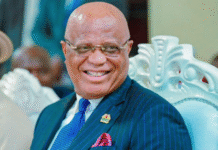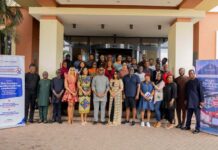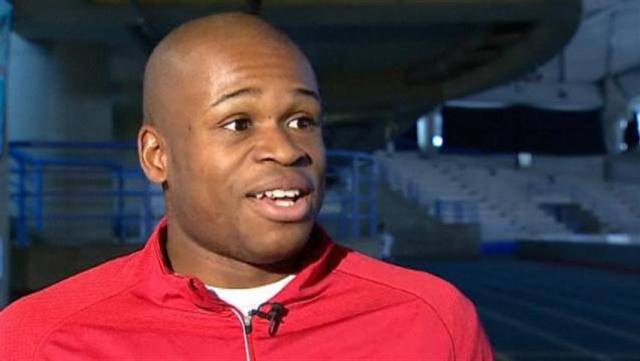A 35-year-old Nigerian-born Canadian sprinter, Oluseyi Smith, has been appointed into the Athletes’ Commission (AC) of the International Olympic Committee (IOC) to help represent the athletes’ voice within the Olympic Movement.
Smith was appointed alongside Olympians Allyson Felix (US), Alistair Brownlee (Britain), and Masomah Ali Zada (Afghanistan) by IOC President Thomas Bach, in consultation with IOC AC Chair Emma Terho, and in accordance with IOC AC regulations, which are aimed at ensuring a balance between genders, regions and sports within the Commission.
One of the appointees, cyclist Ali Zada was born in Afghanistan, is the first refugee athlete on any IOC commission.
The four athletes can each serve a term of up to eight years. With these additions, the IOC AC now consists of 14 women and 9 men.
“Athletes are at the very heart of the Olympic Movement, and it is therefore essential that their voices are heard within the IOC. Those voices must be as diverse as possible.
“The appointment of these four new members of the Athletes’ Commission complements the outstanding skills and experience of the Commission and ensures we have great representation across different sports and regions of the world.
We look forward to working with each of them in the years ahead as they play a vital role in representing the interests of the global athlete community,” Bach said.
Born in Ile-Ife, Oyo State, Smith represented Canada at both the Summer and Winter Games, competing in the 4x100m athletics relay at London 2012 before switching to bobsleigh and finishing sixth in the four-man event at PyeongChang 2018.
He has served as Chair of the Canadian Olympic Committee’s Athletes’ Commission and participated in the IOC Young Leaders programme – which saw him launch a project to help grassroots sports events in Canada become more sustainable.
The IOC AC plays a central role within the Olympic Movement, representing the global athlete voice within the IOC and the Olympic Movement. The Commission is composed of a maximum of 23 members, 12 of whom (majority) are directly elected by athletes through elections during the Games, with a maximum of 11 appointed members.





















































